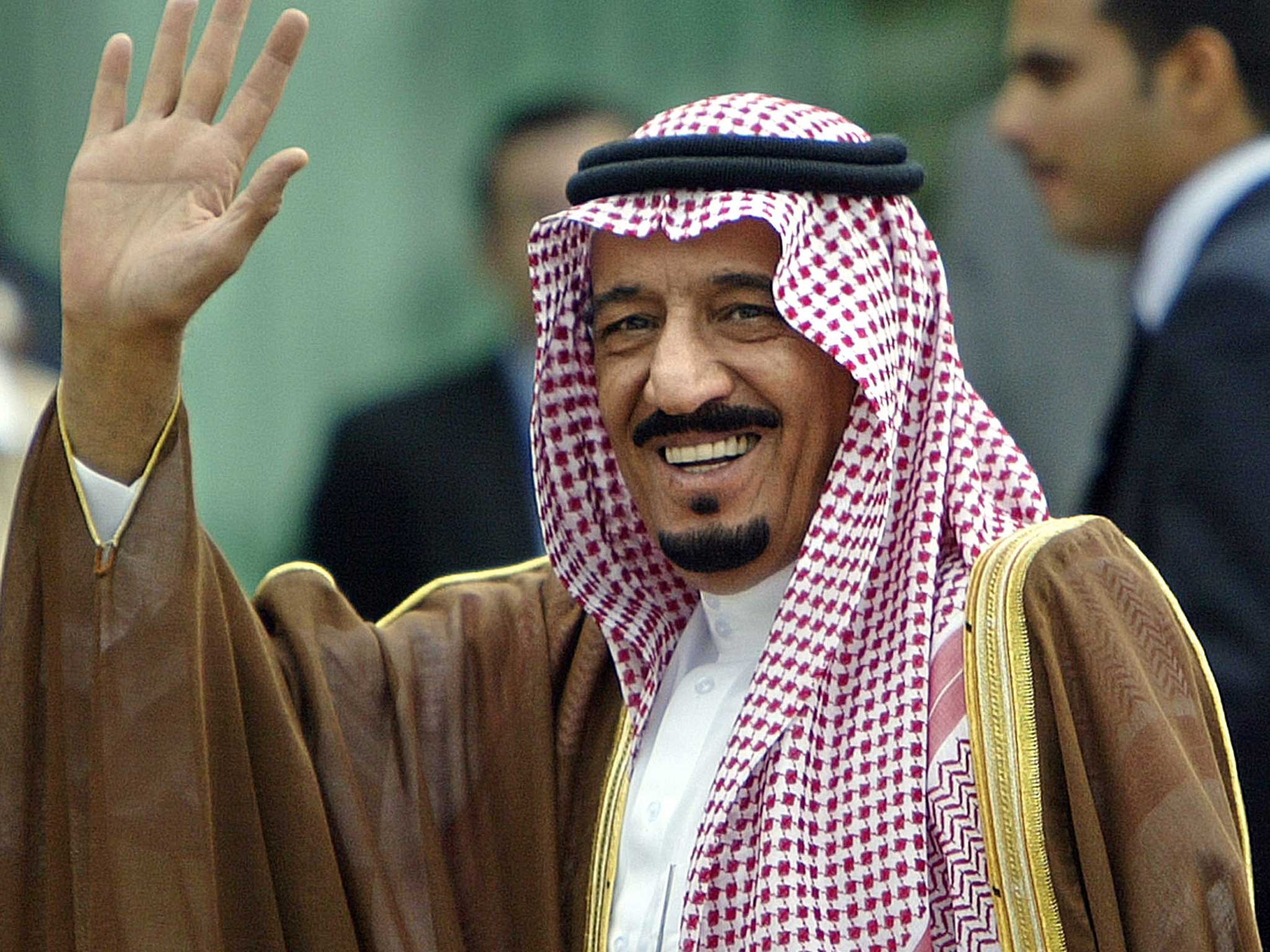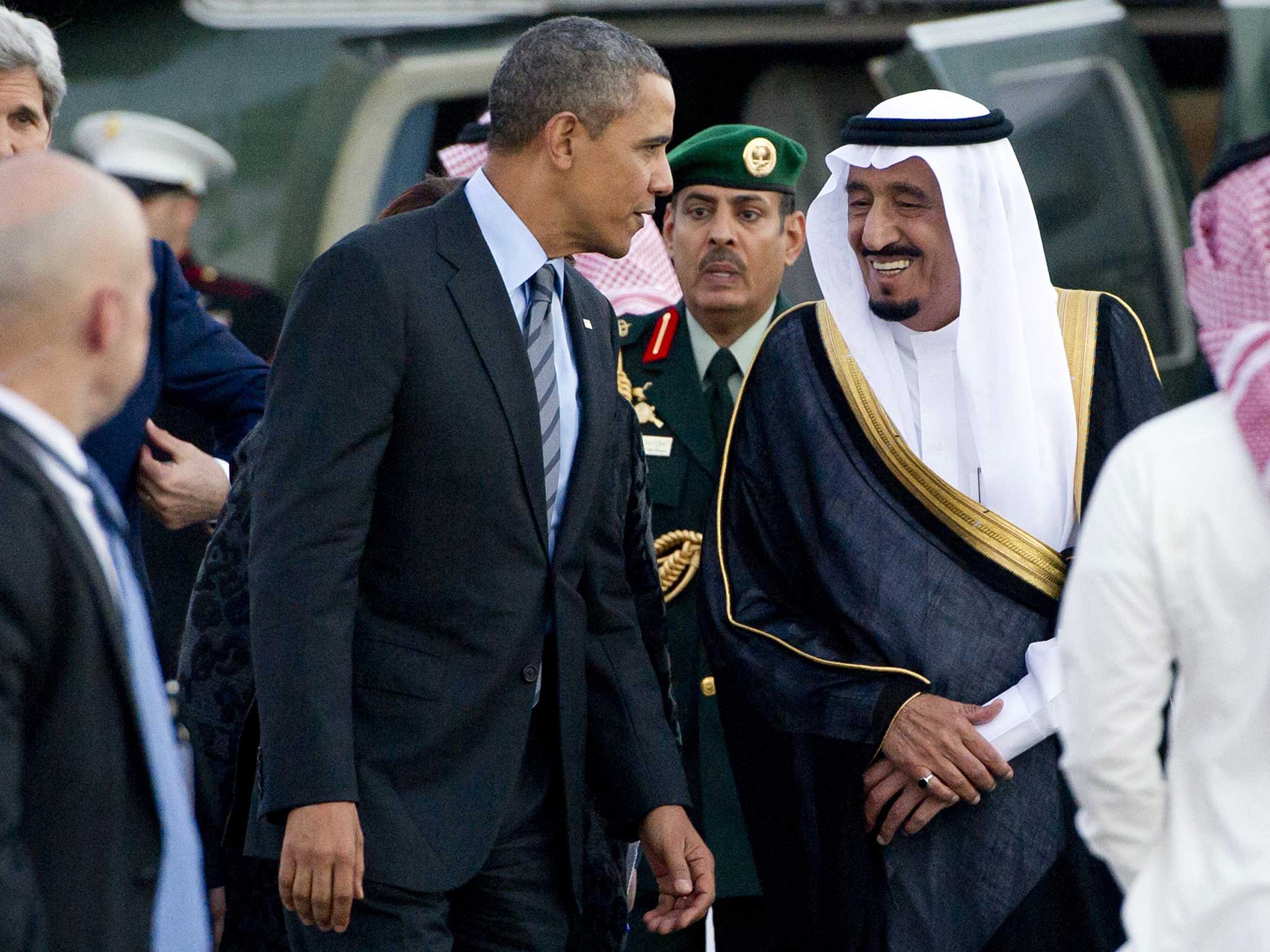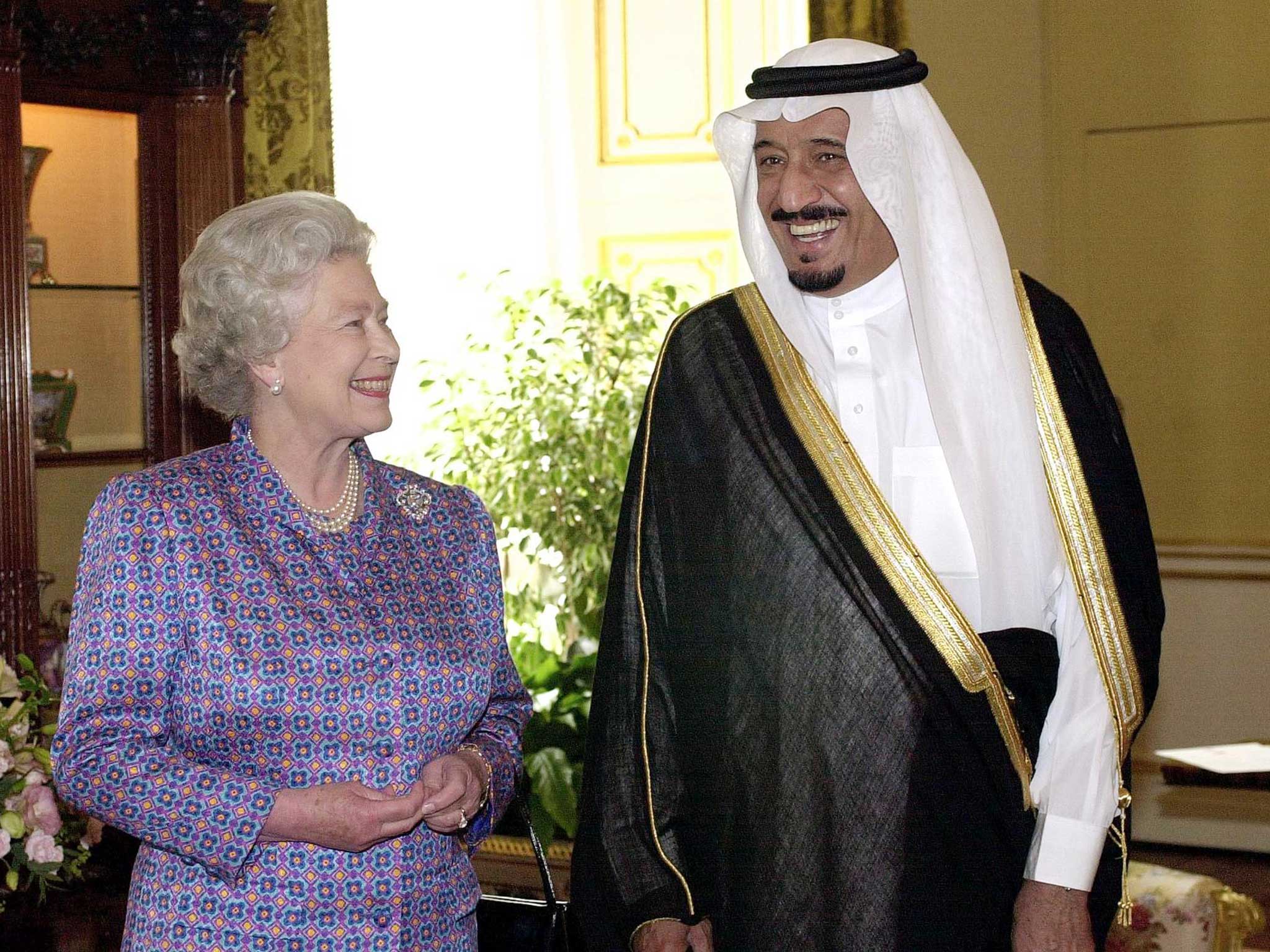King Abdullah dead: Who is King Salman?
Half-brother to the late King, and formerly governor of Riyadh, concerns have been raised over the 79-year-old's health

Your support helps us to tell the story
From reproductive rights to climate change to Big Tech, The Independent is on the ground when the story is developing. Whether it's investigating the financials of Elon Musk's pro-Trump PAC or producing our latest documentary, 'The A Word', which shines a light on the American women fighting for reproductive rights, we know how important it is to parse out the facts from the messaging.
At such a critical moment in US history, we need reporters on the ground. Your donation allows us to keep sending journalists to speak to both sides of the story.
The Independent is trusted by Americans across the entire political spectrum. And unlike many other quality news outlets, we choose not to lock Americans out of our reporting and analysis with paywalls. We believe quality journalism should be available to everyone, paid for by those who can afford it.
Your support makes all the difference.The death of Saudi Arabia’s King Abdullah earlier this morning has placed the crown in the hands of his younger half-brother King Salman. But who is he?
King Salman bin Abdulaziz al-Saud, born 31 December 1935, is expected to continue to provide the stability that characterised King Abdullah’s rule over the 28 million inhabitants of Saudi Arabia.
But commentators have suggested his reign may not be as focused on limited social reform as his brother.
"You can assume there will be at least a slight accommodation to their [Saudi Arabia’s religious leaders] desires for a more rigorous religion in Saudi Arabia,” Karen Elliot House, author of a book on Saudi Arabia's political affairs, told the BBC.
Concerns have been raised over the health of the 25th son of Ibn Saud, founder of the modern Kingdom. The 79-year-old has suffered from at least one stroke, leaving him with limited movement of his left arm, and persistent rumours of dementia are strongly denied by the palace.
Known as an intelligent and hardworking member of the sprawling Saudi Royal family, he was appointed Minister of Defence in 2011. As defence minister he oversaw Saudi Arabia joining the United States coalition of air strikes against Isis, also known as Islamic State, in 2014.
King Salman has been chairing cabinet meetings for several months, as well as handling almost all foreign travel responsibilities since 2012, when he was appointed crown prince and heir.
Prior to this, he governed Riyadh province for almost five decades, overseeing the province’s expansion from 200,000 to seven million. He attracted tourism, capital projects and foreign investment and favoured stronger relationships with the West.

In 2011 he allegedly ordered a crackdown on beggars in the province. All foreign beggars were deported and native beggars were placed in a rehabilitation program.
While governor of Riyadh, an intercepted ambassador cable in 2007 – published by WikiLeaks – indicated his views on democracy.
“He pointed out that democracy should not be imposed,” the cable records. “He said that the KSA [Kingdom of Saudi Arabia] is composed of tribes and regions and if democracy were imposed, each tribe and region would have its political party.”
During this time he also oversaw the daily lives of the Royal princes and princess – most of whom live in Riyadh – quietly burying any royal transgressions with the minimum of publicity. It is this role that has given rise to his reputation as a conciliatory and diplomatic individual.

He owns an important stake in one of the country’s largest media groups, and reportedly maintains relationships with a number of prominent journalists in the country. According to Freedom House, Saudi Arabia scores 84 (100 being the worst) on a press freedom index.
Alongside his work in Riyadh, King Salman is known to have provided an estimated $25million a month to the Afghan mujahedeen during the peak of the anti-Soviet conflict, well before American financial assistance arrived. He is also known to have helped raise money for Bosnian Muslim in the war with Serbia.
His half-brother Muqrin bin Abdulaziz, born in 1945 and partially educated at the Royal Air Force College, was announced as his successor in 2013 by the Allegiance Council, made up of Ibn Saud’s sons and heirs.
Join our commenting forum
Join thought-provoking conversations, follow other Independent readers and see their replies
Comments